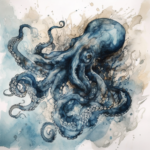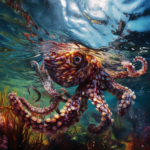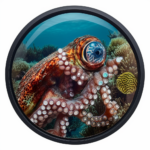Octopuses are fascinating creatures that inhabit the depths of the ocean, known for their intelligence and unique abilities. One question that often arises when discussing these cephalopods is whether or not they fart. While it may seem like a peculiar inquiry, understanding the digestive processes of octopuses can shed light on their overall biology and behavior. In this article, we will delve into the world of octopuses and explore the intriguing topic of whether or not they release gas from their bodies. So, let’s dive in and uncover the truth about octopus flatulence!
Key Takeaways
- Octopuses do not fart in the traditional sense, as they lack a dedicated gas-excreting organ.
- However, they can release gas through their siphon, which is used for jet propulsion and waste elimination.
- The release of gas from an octopus is more of a byproduct of its bodily functions rather than a deliberate act of flatulence.
The Unique Biology of Octopuses
Octopuses are fascinating creatures that inhabit the depths of the ocean. Their unique biology sets them apart from other marine life, making them a subject of intrigue and curiosity. In this section, we will explore the various aspects of octopus biology, including their anatomy, behavior, diet, and waste elimination.
Octopus Anatomy
The anatomy of an octopus is truly remarkable. These underwater creatures have a soft body, which allows them to squeeze through tight spaces and hide in crevices. They are equipped with eight arms, each lined with suckers that help them navigate their surroundings and capture prey. Octopuses also possess a beak-like mouth, which they use to devour their meals.
Octopus Behavior
Octopuses are known for their intelligence and problem-solving abilities. They have been observed using tools, such as rocks and shells, to create shelters or protect themselves from predators. These cephalopods are also masters of disguise, capable of changing their skin color and texture to blend in with their surroundings. Their behavior is a testament to their adaptability and survival skills.
Octopus Diet
When it comes to food, octopuses are opportunistic hunters. They have a varied diet that includes crustaceans, mollusks, and even small fish. Using their powerful arms, they can capture and immobilize their prey before devouring it. Octopuses are skilled predators, relying on their agility and intelligence to secure a meal in the vast ocean.
Waste Elimination
Now, let’s address the burning question: do octopuses fart? While it may seem like a silly question, it’s a valid one. Like all living organisms, octopuses produce waste that needs to be eliminated from their bodies. However, unlike mammals, octopuses do not have a dedicated anus for waste expulsion. Instead, waste is eliminated through a small opening called the siphon, located near their gills. This siphon serves multiple purposes, including jet propulsion for movement and waste elimination.
Octopus Physiology
The physiology of an octopus is truly remarkable. They have a highly developed nervous system, with the majority of their neurons located in their arms. This allows them to have independent control over each arm, enabling complex movements and interactions with their environment. Octopuses also have three hearts, which pump blue-colored blood throughout their bodies. These adaptations contribute to their incredible abilities and make them one of the most intriguing creatures in the ocean.
In conclusion, the unique biology of octopuses is a testament to the wonders of marine life. From their remarkable anatomy and behavior to their diverse diet and waste elimination methods, octopuses continue to captivate researchers and enthusiasts alike. By studying these fascinating creatures, we can gain a deeper understanding of the intricacies of ocean ecology and appreciate the beauty of nature’s creations.
The Octopus Digestive System: A Closer Look
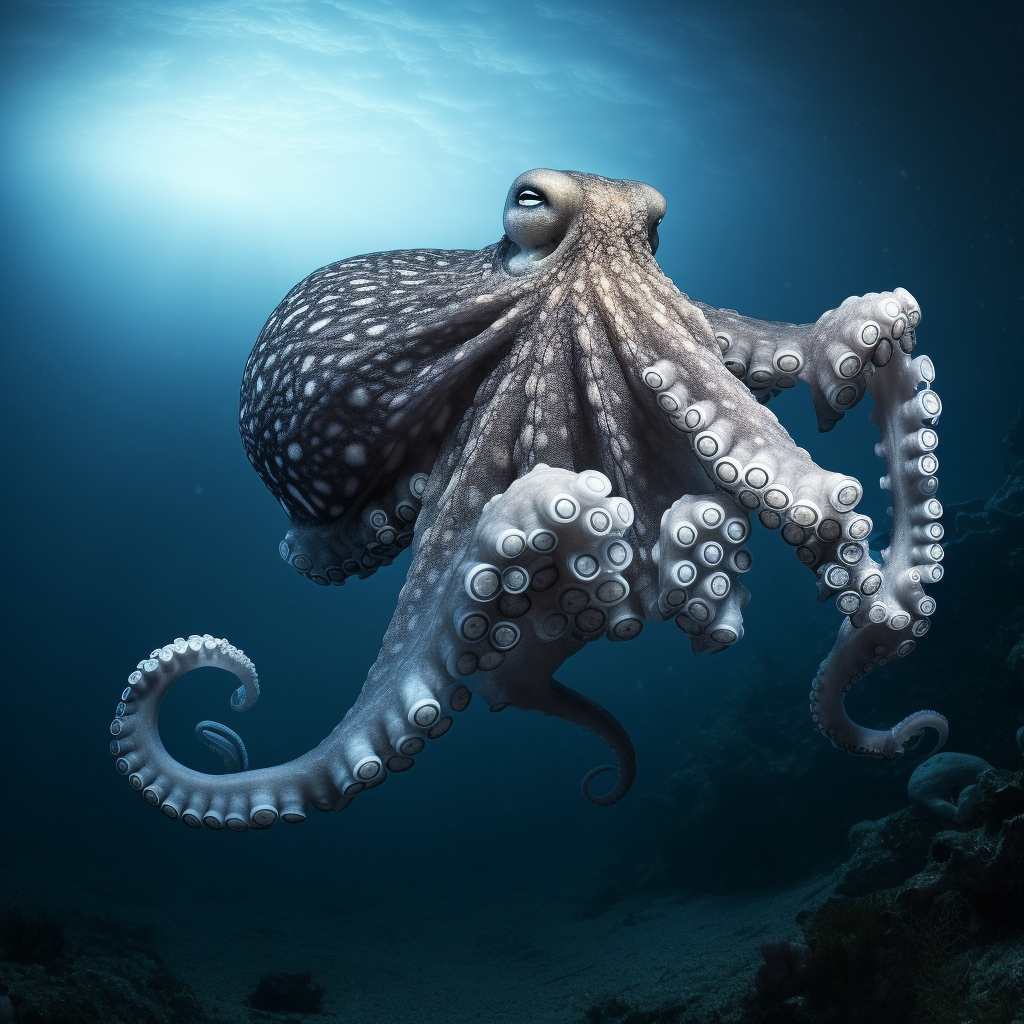
The octopus is a fascinating creature with a unique anatomy and physiology. In this section, we will delve into the intricacies of the octopus digestive system and explore how it functions.
Anatomy of an Octopus
Before we can understand the digestive system of an octopus, it’s important to have a basic understanding of its anatomy. Octopuses belong to a group of marine animals called cephalopods, which also includes squids and cuttlefish. These creatures have a soft body and are known for their eight arms, suction cups, and large, intelligent eyes.
The digestive system of an octopus starts with its mouth, which is located at the center of its arms. The mouth contains a beak-like structure that the octopus uses to break down its food. From the mouth, the food travels through a short esophagus and enters the stomach.
The Digestive Process
Once the food reaches the stomach, the real work of digestion begins. The stomach of an octopus is highly muscular and can expand to accommodate large prey. It secretes enzymes and acids that help break down the food into smaller particles. This process is similar to the way our own stomachs break down food.
After the food is partially digested in the stomach, it moves into the intestine. The intestine is where most of the nutrient absorption takes place. It is a long, coiled tube that runs through the body of the octopus. As the food passes through the intestine, nutrients are absorbed into the bloodstream to provide energy for the octopus.
Waste Elimination
Like all living organisms, octopuses produce waste as a byproduct of digestion. The waste material, known as feces, is formed in the intestine and then expelled from the body. Octopuses have a specialized opening called the anus, located near the base of their mantle, through which the waste is eliminated.
It’s worth noting that octopuses have a remarkable ability to control their waste elimination. They can choose when and where to release their feces, which allows them to keep their immediate environment clean. This behavior is particularly important for octopuses that live in confined spaces, such as aquariums.
Conclusion
The octopus digestive system is a complex and efficient process that enables these fascinating creatures to obtain nutrients from their food. From the mouth to the stomach to the intestine, each part of the digestive system plays a crucial role in breaking down food and extracting nutrients. Understanding the intricacies of the octopus digestive system gives us a deeper appreciation for the wonders of marine life and the incredible adaptations that underwater creatures have developed.
Do Octopuses Fart? Unveiling the Mystery
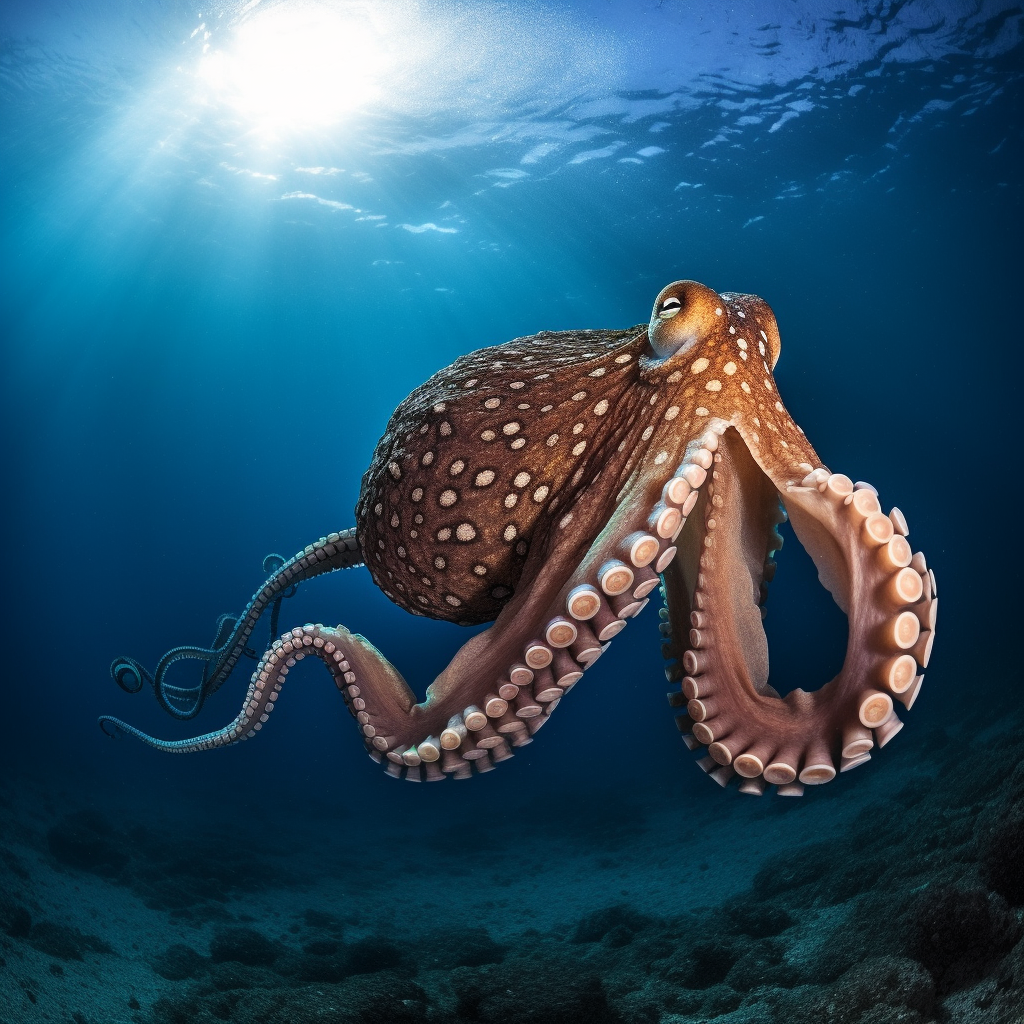
Octopuses are fascinating creatures that inhabit the depths of the ocean. With their unique appearance and remarkable intelligence, it’s no wonder that people are curious about every aspect of their lives, including their bodily functions. One question that often arises is whether octopuses fart. In this section, we will delve into this intriguing topic and explore the truth behind octopus flatulence.
The Digestive System of Octopuses
To understand whether octopuses fart, we first need to examine their digestive system. Like other cephalopods, octopuses have a relatively simple digestive tract. Food enters their bodies through a beak-like mouth, located at the center of their tentacles. From there, it travels down the esophagus and into the stomach.
Marine Life Gas Expulsion
In the process of digesting their food, gases can naturally build up in the digestive system of marine creatures, including octopuses. Just like humans and many other animals, these gases need to be expelled from the body. In the case of octopuses, this gas expulsion occurs through a small opening called the siphon, which is located near their head.
Octopus Anatomy and Behavior
The siphon plays a crucial role in the life of an octopus. It serves multiple functions, including jet propulsion for movement and waste elimination. When an octopus wants to move quickly, it forcefully expels water through its siphon, propelling itself in the opposite direction. This mechanism allows octopuses to swim rapidly and escape from predators.
Octopus Waste Elimination
While the siphon is primarily used for propulsion, it also serves as an exit point for waste products. Octopuses excrete their waste, including feces and urine, through the siphon. However, it’s important to note that the waste expelled by octopuses is typically in the form of a liquid, rather than a gas.
The Mystery of Octopus Flatulence
Now that we understand how octopuses eliminate waste, we can address the question of whether they fart. While there is no scientific evidence to suggest that octopuses produce flatulence in the same way that mammals do, it’s possible that they release small amounts of gas during the waste elimination process. However, this gas is unlikely to be significant enough to be considered flatulence.
Exploring Octopus Physiology
To gain a deeper understanding of octopus physiology, researchers have conducted studies to investigate their digestive processes. These studies have revealed fascinating insights into the biology of these underwater creatures. While the research has not specifically focused on octopus flatulence, it has provided valuable information about their diet, digestion, and waste elimination.
The Intricacies of Octopus Biology
Octopuses are carnivorous creatures that feed on a variety of marine organisms, including fish, crustaceans, and mollusks. Their diet consists of both live prey and scavenged food. Once ingested, the food is broken down by enzymes in the stomach, and the nutrients are absorbed into the octopus’s body. Waste products are then expelled through the siphon.
Conclusion
In conclusion, while there is no definitive answer to whether octopuses fart, it is unlikely that they produce flatulence in the same way that mammals do. Octopuses eliminate waste through their siphon, but the expelled material is primarily in liquid form. Further research into the physiology and behavior of octopuses may provide additional insights into this intriguing topic. Until then, the mystery of octopus flatulence remains unsolved.
Octopus Farming: A Glimpse into Aquaculture
Aquaculture, also known as fish farming, is the practice of cultivating aquatic organisms for food, recreation, and conservation purposes. While fish farming is a well-known aspect of aquaculture, there are other fascinating creatures that can be farmed as well. One such creature is the octopus. Octopus farming is an emerging field that holds great potential for sustainable seafood production. In this section, we will explore the world of octopus farming and delve into its various aspects.
The Rise of Octopus Farming
Octopus farming has gained significant attention in recent years due to the increasing demand for this delicacy in the culinary world. Traditionally, octopuses were caught in the wild, but the rise of octopus farming offers a more sustainable and controlled approach to meet the demand. By farming octopuses, it is possible to reduce the pressure on wild populations and ensure a steady supply of this sought-after seafood.
The Challenges of Octopus Farming
Octopus farming presents unique challenges compared to other forms of aquaculture. Octopuses are highly intelligent creatures with complex behaviors, making their captive breeding and rearing a complex task. Additionally, octopuses have specific environmental requirements, including water quality, temperature, and habitat complexity, which must be carefully managed to ensure their well-being.
Octopus Farming Techniques
Various techniques are employed in octopus farming to address the challenges mentioned earlier. One common approach is to rear octopus hatchlings in controlled environments until they reach a suitable size for market. This involves providing them with appropriate food, mimicking their natural diet, and creating a conducive habitat that encourages their growth and development.
The Benefits of Octopus Farming
Octopus farming offers several benefits, both from an environmental and economic perspective. By farming octopuses, it is possible to reduce the pressure on wild populations, which helps in conserving their natural habitats and maintaining biodiversity. Additionally, octopus farming provides a reliable source of income for coastal communities, creating employment opportunities and contributing to local economies.
The Future of Octopus Farming
As the demand for octopus continues to rise, the future of octopus farming looks promising. Researchers and aquaculture experts are constantly working to improve farming techniques and overcome the challenges associated with octopus rearing. With advancements in technology and a better understanding of octopus biology and behavior, it is expected that octopus farming will become more efficient and sustainable in the years to come.
In conclusion, octopus farming is an exciting field within aquaculture that offers a sustainable solution to meet the increasing demand for this delicacy. While there are challenges to overcome, the potential benefits of octopus farming, both for the environment and the economy, make it a promising avenue for seafood production. With further research and development, octopus farming has the potential to revolutionize the way we obtain this fascinating creature from the sea.
The Fight for Survival: How Octopuses Defend Themselves
Octopuses are fascinating creatures that inhabit the depths of the ocean. They possess unique abilities and adaptations that help them survive in their underwater environment. In this section, we will explore the various ways in which octopuses defend themselves against predators and other threats.
Camouflage: Masters of Disguise
One of the most remarkable defense mechanisms of octopuses is their ability to camouflage. Octopuses can change the color and texture of their skin to blend in with their surroundings, effectively becoming invisible to predators. This remarkable skill is made possible by specialized cells called chromatophores, which contain pigments that can expand or contract, allowing the octopus to mimic the colors and patterns of its environment.
Not only can octopuses change their appearance to match their surroundings, but they can also alter their body shape to resemble rocks, coral, or even other marine creatures. By blending in seamlessly with their surroundings, octopuses can avoid detection and increase their chances of survival.
Ink Defense: A Cloud of Confusion
Another defense mechanism employed by octopuses is the release of ink. When threatened, an octopus can expel a cloud of dark ink into the water, creating a diversion and confusing its predator. The ink cloud serves as a smokescreen, allowing the octopus to escape while its attacker is momentarily disoriented.
The ink released by octopuses is a mixture of mucus, melanin, and other chemicals. It not only creates a visual distraction but also interferes with the predator‘s sense of smell, making it harder for them to track the octopus. This clever tactic gives the octopus a chance to flee and find safety.
Jet Propulsion: A Speedy Getaway
Octopuses are also capable of rapid movement through a process known as jet propulsion. By forcefully expelling water through a funnel-like structure called a siphon, octopuses can propel themselves forward with great speed. This allows them to quickly escape from predators or dangerous situations.
When an octopus wants to make a quick getaway, it contracts its muscles to expel water from its mantle cavity through the siphon. The force of the water jet propels the octopus in the opposite direction, enabling it to swiftly swim away from danger. This ability to rapidly change direction and speed makes octopuses highly elusive and difficult to catch.
Arm Autonomy: A Distraction Technique
Octopuses have eight arms, each lined with suckers that serve various purposes. One of the ways in which octopuses defend themselves is by using their arms as a distraction technique. When threatened, an octopus may detach one or more of its arms, allowing them to continue moving while the detached arm serves as a decoy for the predator.
The detached arm continues to move and wriggle, diverting the predator‘s attention away from the octopus’s main body. This gives the octopus an opportunity to escape while the predator is preoccupied with the arm. The octopus can regenerate its lost arm over time, ensuring that it can employ this defense strategy repeatedly.
In conclusion, octopuses have evolved a range of fascinating defense mechanisms to protect themselves from predators and other threats. From their incredible camouflage abilities to the release of ink, jet propulsion, and arm autonomy, these intelligent creatures have developed an impressive arsenal of survival tactics. By employing these strategies, octopuses are able to navigate the challenges of their underwater world and thrive in their unique habitat.
The Life and Death of Octopuses
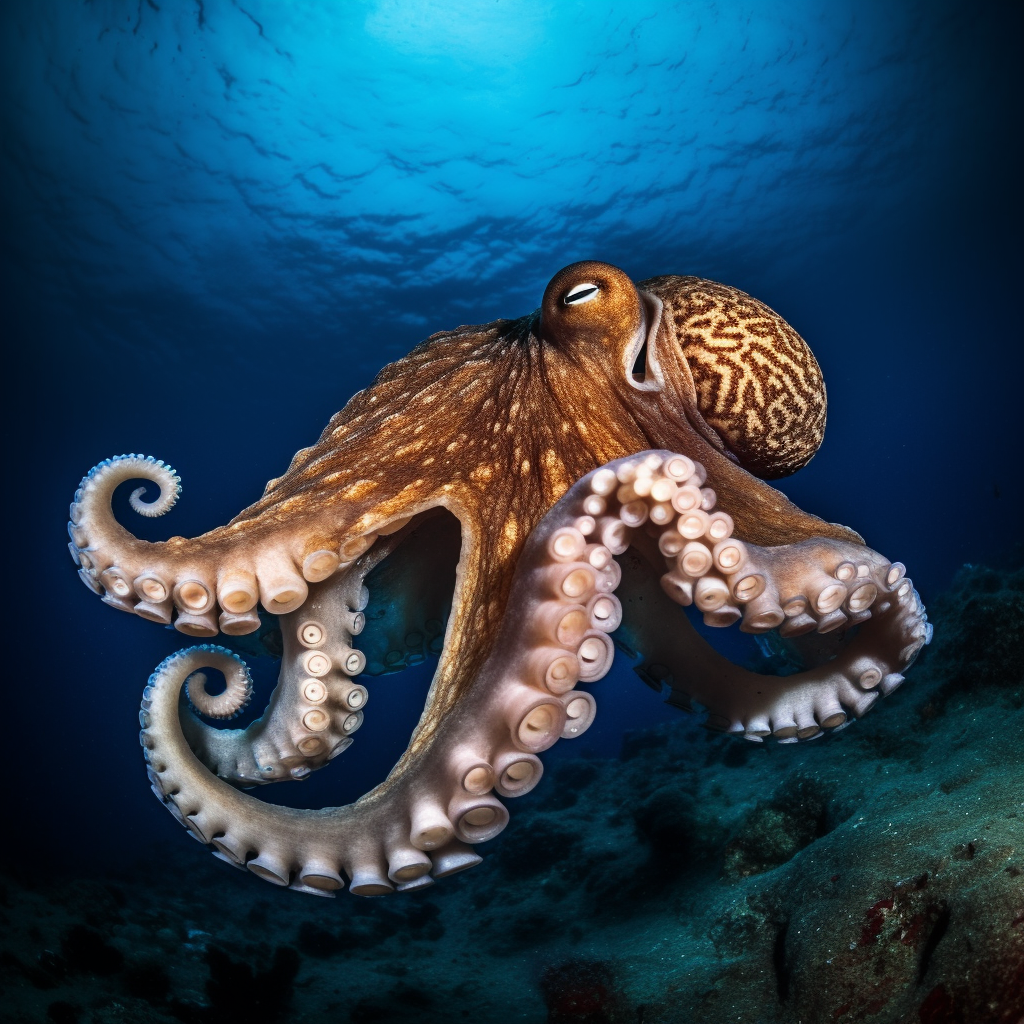
Octopuses are fascinating creatures that inhabit the depths of the ocean. These intelligent beings have captured the imagination of scientists and the general public alike. In this section, we will explore the intricacies of octopus life, from their behavior to their unique physiology.
Octopus Behavior: An Underwater Marvel
Octopuses are known for their complex behavior and problem-solving abilities. These creatures exhibit a wide range of behaviors, including camouflage, tool use, and even playfulness. Their ability to change color and texture allows them to blend seamlessly into their surroundings, making them masters of disguise.
Octopus Anatomy: A Marvel of Adaptation
The anatomy of an octopus is truly remarkable. These creatures have a soft body, with no internal or external skeleton. Instead, they rely on a combination of muscles and a hydrostatic skeleton to move and manipulate objects. Octopuses also possess a highly developed nervous system, with the majority of their neurons located in their arms.
Octopus Diet: A Varied Menu
Octopuses are voracious eaters and have a diverse diet. They are opportunistic predators, feeding on a wide range of prey including fish, crustaceans, and mollusks. Some species of octopus have even been known to eat other octopuses. Their diet is highly dependent on their habitat and the availability of food sources.
Octopus Waste Elimination: The Mystery of Octopus Farts
Now, let’s address the question that brought us here: do octopuses fart? While there is limited scientific research on this specific topic, it is believed that octopuses do produce gas as part of their waste elimination process. However, the exact mechanism and frequency of octopus flatulence remain largely unknown.
Octopuses have a unique waste elimination system. Instead of a traditional anus, they have a single opening called a siphon, which serves multiple functions. The siphon expels waste, releases ink for defense, and propels the octopus through the water. It is possible that gas is also expelled through the siphon, but further research is needed to confirm this.
Octopus Death: The End of an Enigmatic Life
Like all living creatures, octopuses eventually reach the end of their lives. Octopuses are semelparous, meaning they reproduce only once in their lifetime. After mating, the female octopus lays thousands of eggs and devotes herself to protecting and caring for them. Sadly, this intense period of parental care often leads to the death of the mother octopus.
Once the eggs hatch, the young octopuses embark on their own solitary journeys. They face numerous challenges in the ocean, including predation and competition for resources. The average lifespan of an octopus varies depending on the species, but most live for only a few years.
In conclusion, octopuses are remarkable creatures with a complex and intriguing life cycle. From their behavior to their anatomy, these creatures continue to captivate scientists and inspire awe in those who study them. While the mystery of octopus flatulence remains unsolved, it is just one small part of the larger tapestry that is the life and death of these enigmatic creatures. Conclusion
In conclusion, while it may seem like a peculiar question, “do octopuses fart?” the answer is not as straightforward as one might think. Octopuses do not have a traditional digestive system like humans or other animals, so they do not produce gas in the same way. However, they do expel waste through their siphon, which could potentially include some gas. Additionally, their unique biology and ability to camouflage themselves make it difficult to study their flatulence. While there is no definitive evidence to suggest that octopuses fart, it is not entirely out of the realm of possibility. Further research is needed to fully understand the fascinating world of octopus biology and behavior. So, the next time you ponder whether or not octopuses pass gas, the answer remains a bit of a mystery.
Frequently Asked Questions
How do octopuses poop?
Octopuses excrete waste through a siphon, which is a tube-like structure located on the side of their body. The waste is a result of the digestion process where the octopus breaks down its food. This is a part of the octopus’s unique physiology and an important aspect of cephalopod digestion.
How do octopuses feed?
Octopuses are carnivorous and feed on a variety of marine life. They use their arms and suckers to capture prey and their beak to break open shells. Once the food is ingested, it is broken down in the octopus’s digestive system.
Do octopuses fart?
There’s no scientific evidence to suggest that octopuses expel gas in the same way humans do. Their digestion process is different from ours. However, they do expel waste and excess water through their siphon, which can sometimes be mistaken for a fart.
Does an octopus poop?
Yes, octopuses do poop. They excrete waste through their siphon as a part of their digestion process. The waste is usually in the form of a semi-solid mass or liquid, depending on the octopus’s diet.
How do octopuses defecate?
Octopuses defecate through their siphon, a tube-like structure on the side of their body. The waste is expelled as a result of the digestion process and is usually ejected with a jet of water, which also aids in locomotion.
How do octopuses poop and pee?
Octopuses excrete both solid and liquid waste through their siphon. The solid waste is the result of digestion, while the liquid waste, or urine, is filtered from the blood by the kidneys and then expelled.
What is an octopus farm?
An octopus farm, or octopus farming, refers to the practice of breeding and raising octopuses in a controlled environment for various purposes, such as research, food production, or conservation. It’s a complex process due to the unique biology and behavior of octopuses.
Does octopus cause gas?
Eating octopus does not typically cause gas in humans. However, like any food, individual reactions can vary. As for the octopus itself, it does not expel gas like humans or some other animals do.
Why do octopuses die?
Octopuses have a relatively short lifespan, often living only a few years. They typically die after reproducing, due to a process called senescence. This is a part of the octopus’s life cycle and is a subject of ongoing research in marine biology.
Can an octopus fart?
While it’s a humorous concept, there’s no scientific evidence to suggest that octopuses fart in the way that humans or some other animals do. They do expel waste and excess water through their siphon, but this is not the same as a fart.

